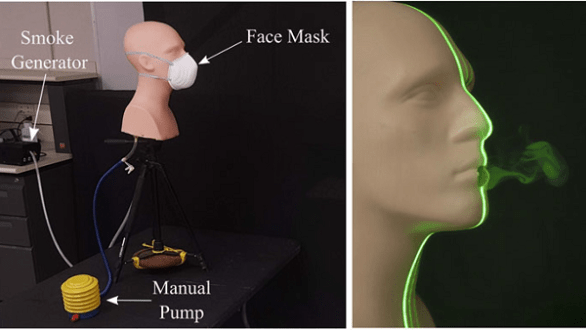 Many of us have been wearing face masks for months, but how well do they really work? A new study compares the effectiveness of different types of masks.
Many of us have been wearing face masks for months, but how well do they really work? A new study compares the effectiveness of different types of masks.
At first, medical experts told us that we didn’t need to wear masks and that anything other than a high-grade N95 medical mask would do little to prevent infection any way. But now experts are leaning toward the notion that wearing something is better than nothing.
Grocery stores and other essential businesses were the first places to supply masks for their employees. Costco has required all shoppers to wear face masks or full-face coverings since May 4th. Other stores like Target, Walmart and Kroger have followed suit. Now in areas where new coronavirus cases are surging, face coverings are becoming mandatory to wear in all public places.
However, there is a big difference in effectiveness between the wide range of masks available. From N95 masks (which filter out 95% of the particles that pass through it, but are virtually impossible for the average person to get) to homemade cloth face masks and bandanas, which types of masks offer the most protection?
Researchers at Florida Atlantic University experimented with different materials and styles of non-medical masks comparing bandana style masks and handkerchiefs with a well-fitted, quilted cotton stitched mask and cone style masks.
Using mannequins, air machines and lasers, researchers mimicked human coughs and sneezes to see which masks were most effective at stopping the spread of droplets.
Here is what they found…
POOR
Loose-fitting single layer bandanas were the least effective; the droplets traveled three feet, seven inches.
Tutorial: DIY Bandana Facemask
With a face mask constructed out of a folded cotton handkerchief or bandana, the droplets traveled one foot, three inches.
Surprisingly, even with the cone-style masks available at pharmacies, droplets traveled about eight inches.
The best protection was provided by a stitched quilted cotton mask, with the droplets only traveling about 2.5 inches.
The researchers also tested how far droplets traveled with no masks. They found that an emulated heavy cough travels up to 12 feet, which is twice the CDC’s recommended social distancing guideline of 6 feet.
The researchers suggested that the guidelines should be updated based on this new information. In the meantime, the lead researcher said that seeing is believing. This study demonstrates that the right kind of mask really does make a difference in helping protect against catching and spreading the virus.
Some people complain that having to wear face coverings infringes on their rights. But even if you don’t believe in wearing them, if it makes other people around you feel better, just be nice and consider their feelings. It won’t hurt you to wear a face mask for the short time you’re out in public. And as the study shows, it’s important to keep practicing social distancing even while wearing a face mask.
Read the full study here: https://aip.scitation.org/doi/10.1063/5.0016018



